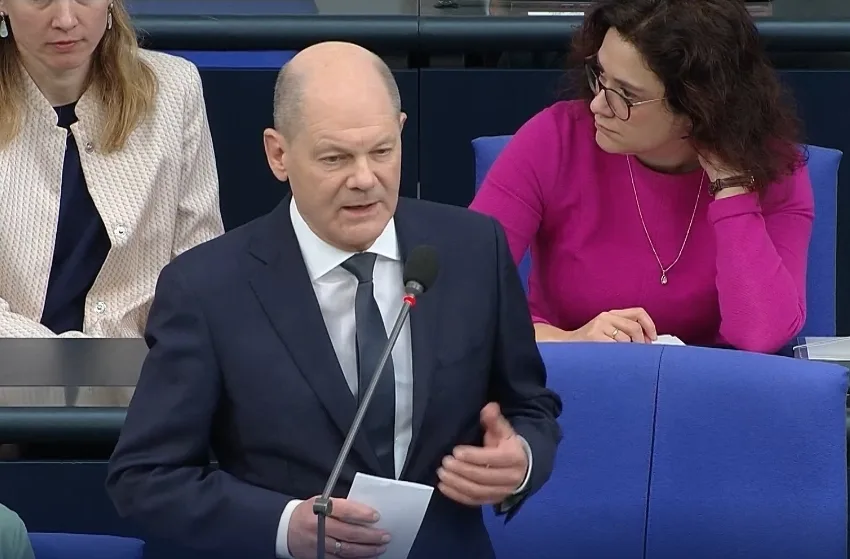Berlin, March 14, 2024, The Europe Today: In a decisive move reflecting Germany’s stance on military involvement in the conflict between Ukraine and Russia, the lower house of parliament, the Bundestag, has voted against the deployment of Taurus missiles to support Ukraine’s defense efforts against the ongoing Russian invasion, marking the third rejection of such a proposal this year.
The opposition Christian Democratic Union (CDU) had advocated for the immediate deployment of the long-range Taurus missile system amid Russia’s incremental advances on the front lines. However, Chancellor Olaf Scholz cautioned against the risks associated with deploying the missiles, emphasizing the potential escalation of conflict and the possibility of drawing Germany into direct confrontation with Russia.
Of the 690 lawmakers who participated in the vote, 495 voted against the delivery of Taurus missiles, while 190 voted in favor, with 5 abstentions. While Chancellor Scholz’s Social Democrats (SPD) maintained their stance against the delivery, members from the ruling coalition, particularly from the Green Party and the business-focused Free Democrats, expressed support for the motion.
However, the far-right Alternative for Germany (AfD) and the socialist Left Party joined the SPD in opposing the motion. The debate witnessed differing perspectives within the Bundestag, with Rolf Mützenich, head of the SPD parliamentary group, defending Chancellor Scholz’s cautious approach, emphasizing the need for prudence and clarity in political decisions.
Conversely, Johann Wadephul, the CDU’s deputy parliamentary group leader, criticized the SPD’s stance, asserting the necessity for determination and clarity in extending support to Ukraine against Russian aggression.
The Taurus KEPD-350 missile, considered one of the Bundeswehr’s most advanced weapon systems, possesses remarkable capabilities, including precision targeting of high-value enemy assets. While the missile’s deployment could significantly bolster Ukraine’s defensive capabilities, concerns over potential provocation and escalation have led the German government to refrain from authorizing its transfer.
Ukraine’s possession of similar weapon systems with a shorter range underscores the potential strategic advantage that Taurus missiles could provide in targeting Russian positions far beyond the front lines, disrupting supply routes, and dismantling command centers.
However, Berlin’s reluctance to supply weapons capable of striking targets within Russian territory reflects a delicate balance of diplomatic considerations, with Germany mindful of avoiding actions that could further escalate tensions with Moscow.
Despite repeated warnings from Moscow against the delivery of advanced weapon systems to Ukraine, Germany’s decision reaffirms its commitment to pursuing diplomatic solutions and avoiding actions that could exacerbate the conflict in the region.


